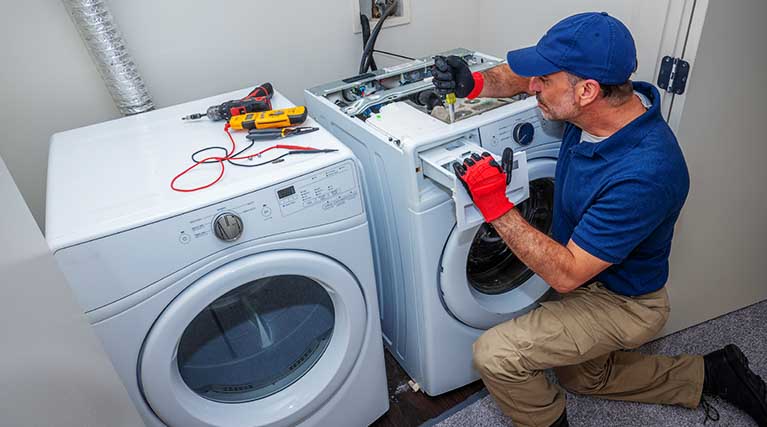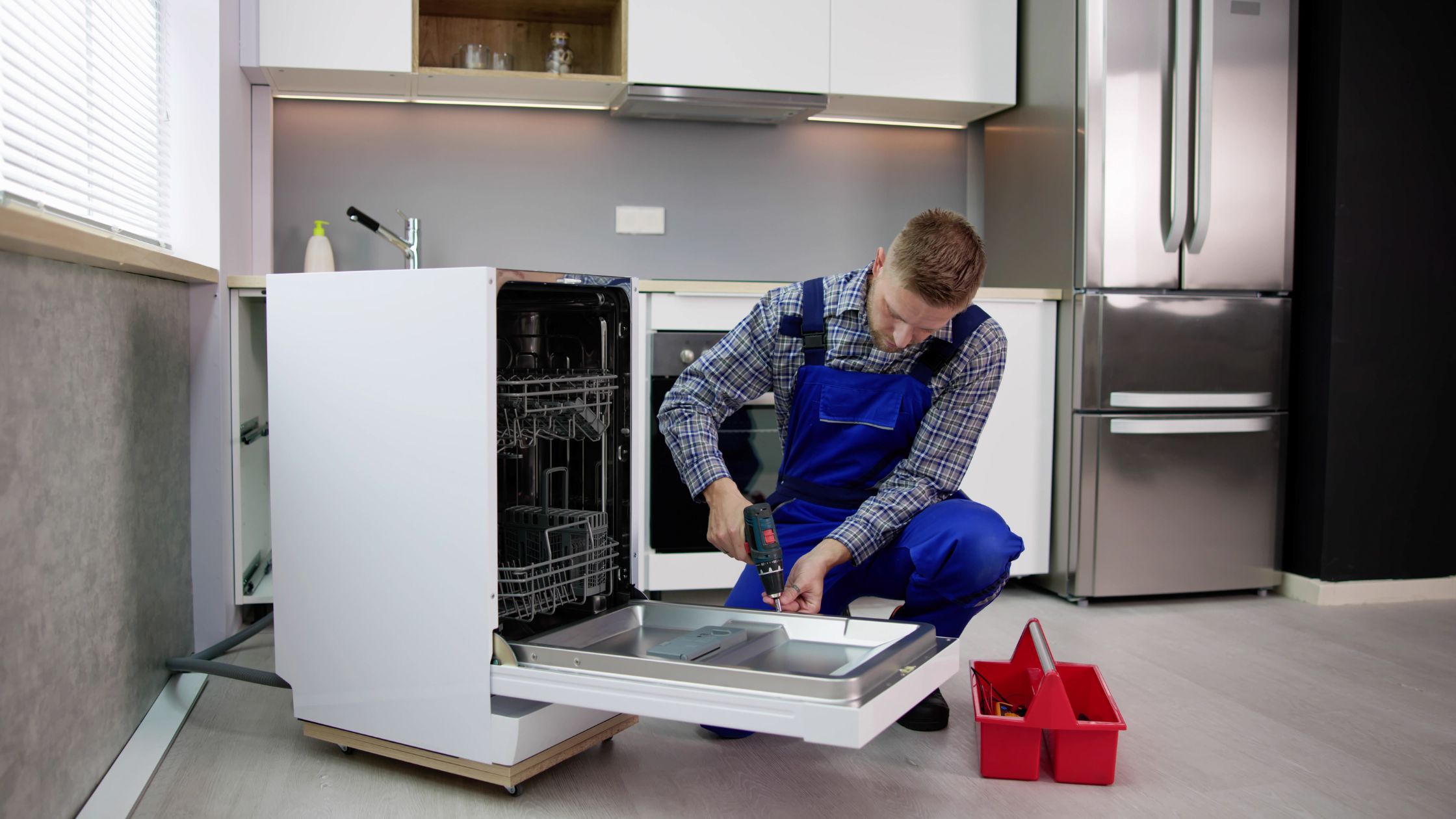The Ultimate Guide to Understanding Device Repair in your home
When your refrigerator quits cooling down or your stove declines to heat, it can feel overwhelming. Recognizing device repair service in the house can conserve you time and cash. You'll discover to recognize symptoms, use crucial devices, and follow a methodical troubleshooting procedure. Yet before you start, there are important safety and security precautions you need to consider. What are one of the most common troubles, and how can you repair them? Let's explore the basics.
Usual Device Troubles and Their Signs and symptoms
When your home appliances begin breaking down, it's important to recognize the signs early on. Overlooking them can cause bigger problems and expensive repair work. If your fridge isn't cooling down correctly, you could notice warm areas or condensation developing. This might suggest a stopping working compressor or an obstructed vent.Your dishwashing machine may show troubles through dirty meals or unusual sounds throughout cycles. If you hear grinding or clanking, it's time to investigate.A washing machine that will not spin or drain pipes can leave you with soaked washing, suggesting a clogged drainpipe or a malfunctioning pump.Lastly, if your oven's temperature seems off or it takes permanently to preheat, you may be taking care of a defective thermostat. By remaining alert to these signs and symptoms, you can deal with issues before they rise into major repairs.
Crucial Tools for Device Repair Service
When you're dealing with device repair work in your home, having the right tools is important. Basic hand tools like screwdrivers and pliers will help you disassemble and deal with different home appliances, while electrical testing gadgets ensure you're working safely with circuitry. Let's go over what you need to get started on your repair work journey.
Fundamental Hand Tools
Having the right tools is important for efficient home appliance fixing in your home. Start with a trustworthy screwdriver collection, consisting of both flathead and Phillips types, as screws prevail in home appliance setting up. Pliers are likewise crucial; they aid with gripping, turning, and reducing wires or tiny parts. A pair of needle-nose pliers can reach tight places quickly. You'll need a good adjustable wrench for tightening up or loosening nuts and screws. An energy blade is helpful for puncturing product packaging or insulation. Do not forget a tough workbench or surface to safely arrange your devices and components. With these fundamental hand devices, you'll be well-prepared to tackle most appliance fixings that come your method.
Electric Testing Devices
Along with basic hand devices, electrical testing gadgets play an essential role in device repair service. These tools help you diagnose electric concerns and guarantee devices operate safely. A multimeter is vital; it determines voltage, current, and resistance, permitting you to pinpoint issues promptly. A non-contact voltage tester is another essential, letting you detect online cords without making direct contact, improving your safety. Secure meters are fantastic for gauging present circulation in cords without separating them, saving you effort and time. In addition, circuit testers can quickly examine if outlets are operating properly. By using these gadgets, you'll simplify your troubleshooting process and improve your repair skills, making device upkeep a whole lot simpler.
Step-by-Step Guide to Diagnosing Appliance Issues
When your home appliance acts up, it can be irritating, however detecting the issue doesn't have to be frustrating. You'll discover to identify common issues and use efficient repairing techniques. Let's go through the actions to get your home appliance back in working order.
Typical Home Appliance Troubles

Troubleshooting Methods Described

Fixing Major Kitchen Appliances: A Closer Look
Have you ever before questioned exactly how to take on usual issues with your cooking area devices? Repairing significant cooking area devices like fridges, stoves, and dishwashing machines can be easier than you think. Beginning by identifying the issue-- whether it's a refrigerator not cooling or a stove that will not warm. Usually, an easy reset or inspecting the power resource can resolve the issue.For fridges, tidy the condenser coils and check the door seals. If your stove's not heating, check the home heating element and thermostat. Dishwashing machines may just require a tidy filter or a reset to get them back at work. Constantly disconnect the home appliance prior to diving right into repairs to ensure your safety.Don' t fail to remember to get in touch with the individual manual for particular repairing pointers related to your design. With a little bit of perseverance and the right devices, you can with confidence take on home appliance repairs and conserve cash in the procedure!

Fixing Laundry Equipments: Tips and Techniques
When your washing home appliances website begin breaking down, it can really feel overwhelming, however repairing them does not need to be an inconvenience. Start by checking the power supply. Validate the device is plugged in and the outlet is operating. Next off, examine the door or lid button; a malfunctioning switch can stop the device from operating.For washers, if it's not rotating, inspect for out of balance loads. Rearranging the clothes might address the concern. If your dryer isn't heating, tidy the lint filter and check the air vent for blockages.Listen for uncommon sounds; they can show an issue. If your appliance is dripping, check the hose pipes for cracks or loosened links. Document any type of error codes displayed on electronic screens, as they can guide you in identifying the problem. Finally, speak with the user handbook for specific troubleshooting suggestions associated with your model.
Safety And Security Precautions to Take Throughout Repair works
Before you begin any type of home appliance fixings, it's vital to prioritize safety and security to stop mishaps or injuries. Initially, disconnect the home appliance or switch off the circuit breaker to ensure no power reaches it while you work. Usage protected devices to minimize the threat of electrical shock. Use safety goggles and gloves to shield on your own from sharp sides or debris (Washer dryer repair service Dependable Refrigeration).Make specific your workspace is tidy and well-lit, so you can see what you're doing. Keep kids and pets far from the area to prevent disturbances and prospective threats. If you're dealing with gas devices, be added mindful; check for leaks before proceeding.Take your time, and don't hurry through repairs. If you feel unpredictable regarding any kind of action, it's much better to stop and research study than to guess. Complying with these precautions will aid produce a more secure atmosphere for your DIY appliance fixing job
When to Call an Expert for Help
Just how do you recognize if it's time to call in a professional for appliance fixings? If you've attempted standard troubleshooting without success, it's a clear indication. If your home appliance still will not begin or shows uncommon noises after resetting it, do not be reluctant to look for specialist help.When you observe leaks, smoke, or burning smells, prioritize safety and call a professional promptly. These concerns can lead to more considerable damages or pose dangers to your home.Also, if your home appliance is under warranty, contacting a professional is often the very best path. They can assure that repairs will not void your guarantee, saving you money in the lengthy run.Finally, if you're uncertain or uneasy with complicated repairs, it's a good idea to leave it to the specialists. Bear in mind, dealing with complicated concerns without the appropriate proficiency can result in costly errors. Depend on an expert when in doubt!
Often Asked Questions
How Can I Avoid Home Appliance Troubles in the Future?
To avoid appliance issues in the future, you should perform regular upkeep, look for damage, clean filters, and prevent overloading. Staying proactive will help prolong their life-span and maintain them running smoothly.
What Are one of the most Typical DIY Home Appliance Repair Service Mistakes?
You may ignore security precautions, skip troubleshooting actions, or use incorrect devices when trying do it yourself home appliance repair work. Rushing the procedure or ignoring manufacturer guidelines can bring about even more considerable issues and expensive errors. Remain individual and informed!
Just how Do I Know if a Part Needs Replacement?
You can tell if a part requires replacement by looking for uncommon sounds, leaks, or inconsistent performance. If the appliance has a hard time to run appropriately or shows visible damages, it's likely time for a substitute.
Can I Make Use Of Generic Components for Device Services?
Yes, you can make use of generic components for home appliance repair services, yet determine they work - Washer dryer repair service Dependable Refrigeration. Generic components may conserve you money, but they can affect performance or durability, so consider your choices carefully prior to making a decision
What Service Warranties Cover Device Repair Works?
The majority of home appliance warranties cover repair work for making defects, but they often omit damages from misuse. Check your warranty terms thoroughly, as some may need making use of licensed specialists and original parts for insurance coverage to remain valid.